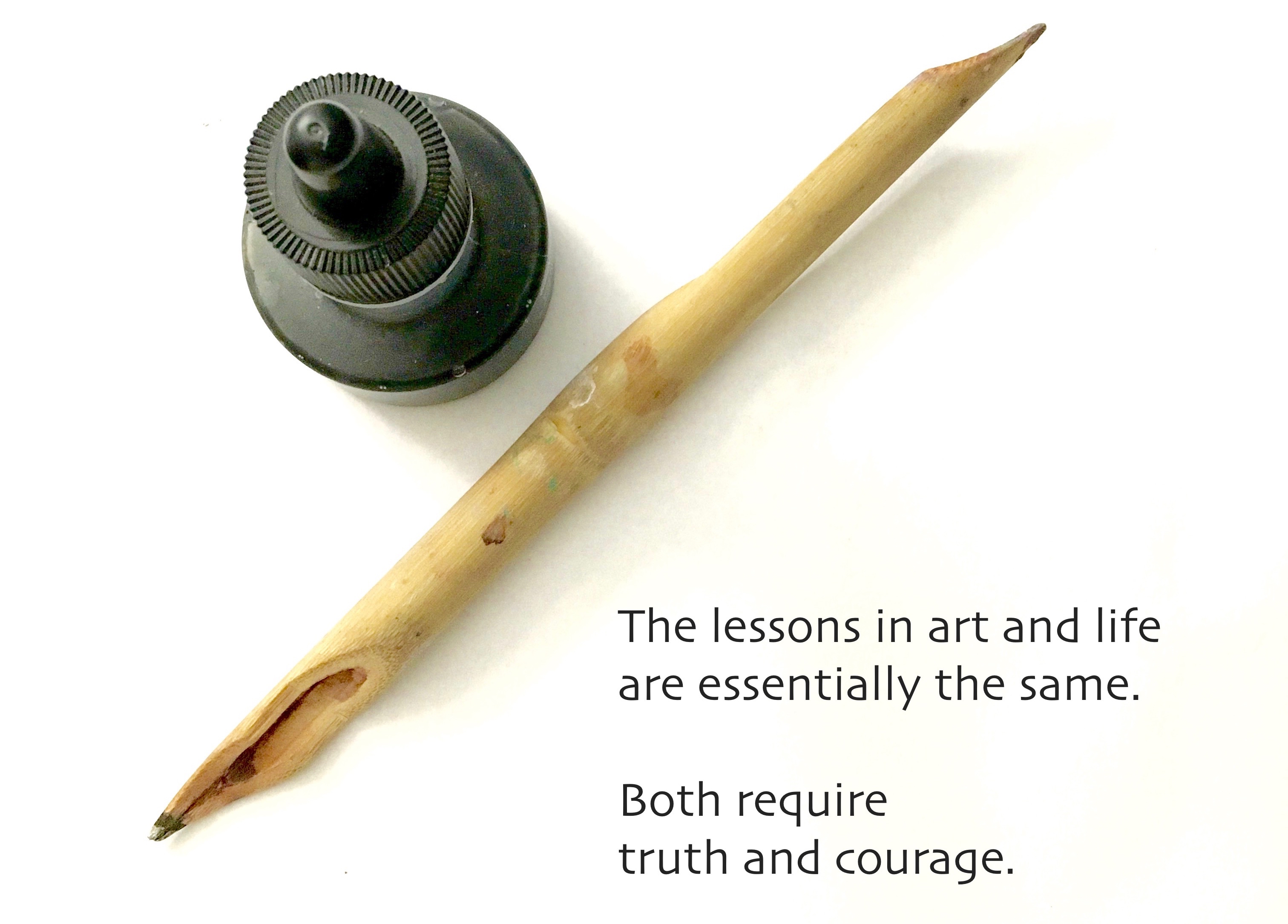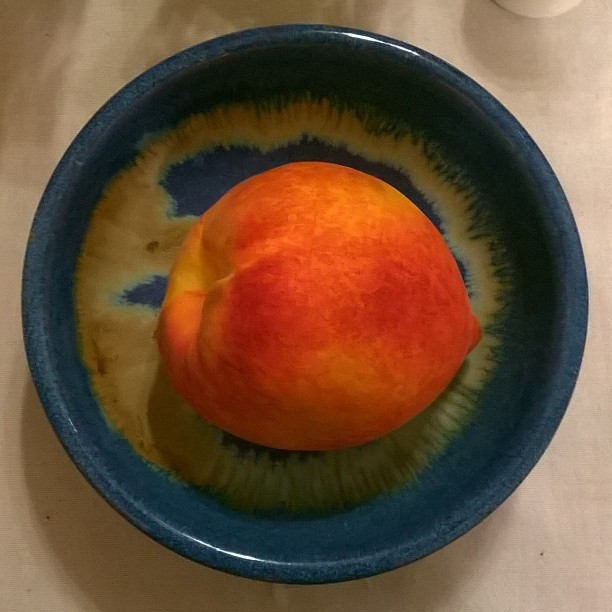
LIFE AS MYTH
![]()
JOURNAL
![]()
JOURNAL 2021
![]()
A peach of great price
The lessons in the peach
![]()
AUTUMN 2021
On peaches, squirrels and the lady bug who came to stay
![]()
SUMMER 2021
![]()
SPRING 2021
![]()
WINTER 2021
![]()
LIFEWORKS
![]()
ATLAS
![]()

JOURNAL 2021
THE LESSONS IN THE PEACHThough Georgia is the self-proclaimed "peach state" I heard once that they actually grow more peaches in South Carolina. That feels right to me because when I was a little girl that is where we always went to buy them. During the summer months (usually starting in June) we would pile into my mother's blue and white Plymouth station wagon, cross over the Talmadge Bridge and head in the general direction of Hardeeville, South Carolina. That's where they had roadside stands which sold fresh fruits and vegetables, fruits and vegetables so fresh, in fact, that they had been picked that very morning. Yellow corn with silk tasseled tips, vine ripened tomatoes, pole beans, yellow squash, swollen snake-skinned watermelons. And, of course, peaches, fuzzy skinned and sticky sweet.
And something rather like that might be found in the mythology surrounding Hsi Wang Mu, ruler of the western paradise and keeper of the Peaches of Immortality.
The jade palace of Hsi Wang Mu is on the peaks of the snowy mountain range of K'un-lun and is the home of the Immortals. According to Taoist myth, the peach orchards of Hsi Wang Mu leaf out once every three thousand years but it is only after an additional three thousand years that the trees bear a season of fruit. The banquet to celebrate this event takes place on the shores of the Yao Ch’ih (Lake of Gems) and attended by the Immortals. The feast includes such delicacies as dragon liver and phoenix marrow. The highlightis the, rarest of rare, Immortal Peach, which has the magical property of bestowing immortality on all who taste it.
Two stories with two peaches. The first peach linked to South Carolina summers and station wagons and the pleasures of a roadside fruit. The second linked to a jade palace and a Chinese goddess and the gift of immortality. Any connection between the two? Yes, it has to do with our mortality. And when the stories are viewed through that mythic lens, a somewhat larger question emerges -- which is -- how do I bridge the gap (inside myself) between mortal living and immortal Life?
With midlife comes the specter of our own mortality. And the more palpable presence of Death can bring chaos, disruption, depression, withdrawal, or any other number of psychological demons. However, our mortality is, in fact, a gift -- because it is only by awakening to our own mortality that we create the possibility of receiving the gift of our immortality.
So what does that mean? It's about crafting a life which lies somewhere between the back seat of a Plymouth station wagon and the shores of the Lake of Gems. And what lies in between is -- who you are, the essence of who you really are, your particular spark of the divine fire. Not what you have always been told you are or who you ought to be -- but who you really are and the life that expresses that divine spark.
The challenge is what happens on the way to the Lake of Gems -- the lessons found in Life's obstacles, setbacks, self-doubt, suffering.
Over the years I have watched many times the PBS series, The Power of Myth. The program is a six hour documentary which features conversations between Joseph Campbell, noted mythological scholar, and television journalist Bill Moyers. Taped in 1988 shortly before Campbell's death, The Power of Myth explores the transformative potential of myth for the individual and the society as a whole.
Last night as I struggled with writer's block on how to finish this piece, I turned again to Campbell and Moyers. When I placed the DVD into the player it continued where I had apparently left the program from the last time. And with that section, I now conclude.
Peach in a lapis bowl. Usher. 2015.
Moyers: What is the adventure that I have to take, you have to take? You talk of something called a soul's high adventure.
Campbell: My general formula for my students is "follow your bliss." Find where it is and don't be afraid to follow it.
Moyers: Can my bliss be my life's love or my life's work? Is it my work or my life?
Campbell: Well, if the work you are doing is the work you chose to do because you enjoy it, then that's it. But if you think, "Oh, gee, I couldn't do that." That's your dragon, locking you in.
Moyers: Unlike the classical heroes, we're not going on the journey to save the world but to save ourselves.
Campbell: And in doing that you save the world. I mean you do. The influence of a vital person vitalizes. There's no doubt about it. The world is a wasteland. People have the notion of saving the world by shifting it around and changing the rules and so forth. No. Any world is a living world if it is alive. And the thing is to bring it to life. And the way to bring it to life is to find where it is in your own life and be alive yourself.
Moyers: You say I have to take that journey and slay those dragons. Do I have to go alone?
Campbell: If you have someone who can help you, that's fine, too. But ultimately the last trick has to be done by you.
The Power of Myth/Episode One: The Hero's Adventure (on DVD), with Joseph Campbell and Bill Moyers (1988).


